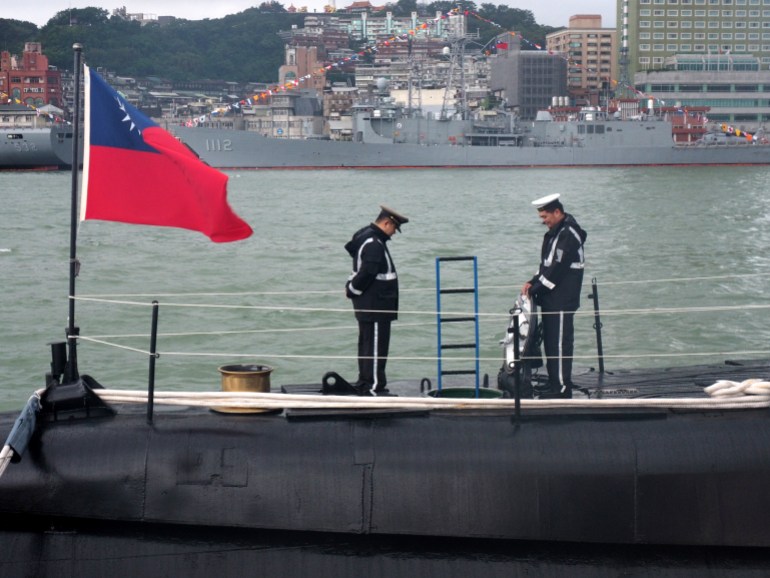Taiwan says faces daily threats as US notifies of $280m arms sale
Taiwan’s defence ministry says latest weapons sale demonstrates US commitment to help strengthen island’s defence capabilities.

Taiwan faces daily military threats from “authoritarian forces”, President Tsai Ing-wen said on Tuesday, as the United States announced a new $280m arms sale package to the Chinese-claimed island, the sixth this year.
The outgoing Trump administration has ramped up support for the democratic island, with 11 arms sale packages in total and on Monday notified Congress of its plans to sell a new Field Information Communications System (FICS) to Taiwan.
Keep reading
list of 3 itemsAs China tightens its grip on Hong Kong, could Taiwan be next?
China weighs legal steps against ‘die-hard Taiwan secessionists’
The system is designed to provide mobile and secure communications on the island and is part of Taiwan’s goal to modernise its military communications.
Such sales have angered China, adding to the existing tension between Beijing and Washington, with China placing sanctions on US companies involved and stepping up its military activities near Taiwan, including regular air force missions.
Speaking at a security forum in Taipei, Tsai noted the threats in the region, including the “increasingly militarised” South China Sea, where China has built artificial islands with air and naval facilities claiming almost the entire area under its so-called “nine-dash line”.
“Authoritarian forces consistently attempt to violate the existing norms-based order,” Tsai said.
“Taiwan has been at the receiving end of such military threats on a daily basis.”
Tsai did not name China. But in recent months, Taipei has blamed Beijing for “repeated” violations of its airspace.
US-Taiwan security partnership
The Ministry of National Defense details almost daily incursions into Taiwan’s airspace by Chinese aircraft. In September, China reportedly threatened or entered into Taiwan’s airspace 46 times in the past nine days, it said.
“Fly overs are happening almost every day now. Sometimes it’s electronic intelligence planes escorted by fighters, sometimes they’re anti-submarine warfare planes,” Liao “Kitsch” Yen-Fan, a security analyst at the Institute of National Defense and Security Research in Taiwan.
Liao told Al Jazeera that China crossing the median line of Taiwan’s Air Defense Identification Zone (ADIZ) is “especially provocative”.
“This is probably to test and map our response and establish the new normal.”

Tension between China and Taiwan has risen since President Tsai Ing-wen first took power in 2016, but has intensified since she was re-elected in a landslide in January.
Tsai rejects Beijing’s view that Taiwan – self-ruled for 70 years and one of the region’s most vibrant democracies – is part of “One China”, an assertion that angered China.
Taiwan’s defence ministry said the latest weapons sale demonstrated that the US commitment to helping strengthen the island’s defence capabilities remained unchanged.
“Taiwan and the United States will continue to consolidate their security partnership to maintain peace and stability in the Taiwan Strait,” it said.
One PLA Y-8 ASW aircraft entered #Taiwan’s southwest ADIZ in the morning of Dec 7. Please check our official website to get more information: https://t.co/md40rwkTLO pic.twitter.com/a15itQN7Xg
— 國防部 Ministry of National Defense, R.O.C. 🇹🇼 (@MoNDefense) December 7, 2020
Taiwan’s government has moved to reassure its people that the new administration of President-elect Joe Biden, a Democrat, will not mean reduced US backing for the island.
Speaking at the same forum, Kurt Campbell, a former US official who has advised Biden, said there was strong bipartisan support for Taiwan.
“There is a broad group of people across the political aisle that understand the profound strategic significance and our strategic interests in maintaining a strong relationship with Taiwan,” said Campbell, the top US diplomat for East Asia under former President Barack Obama.